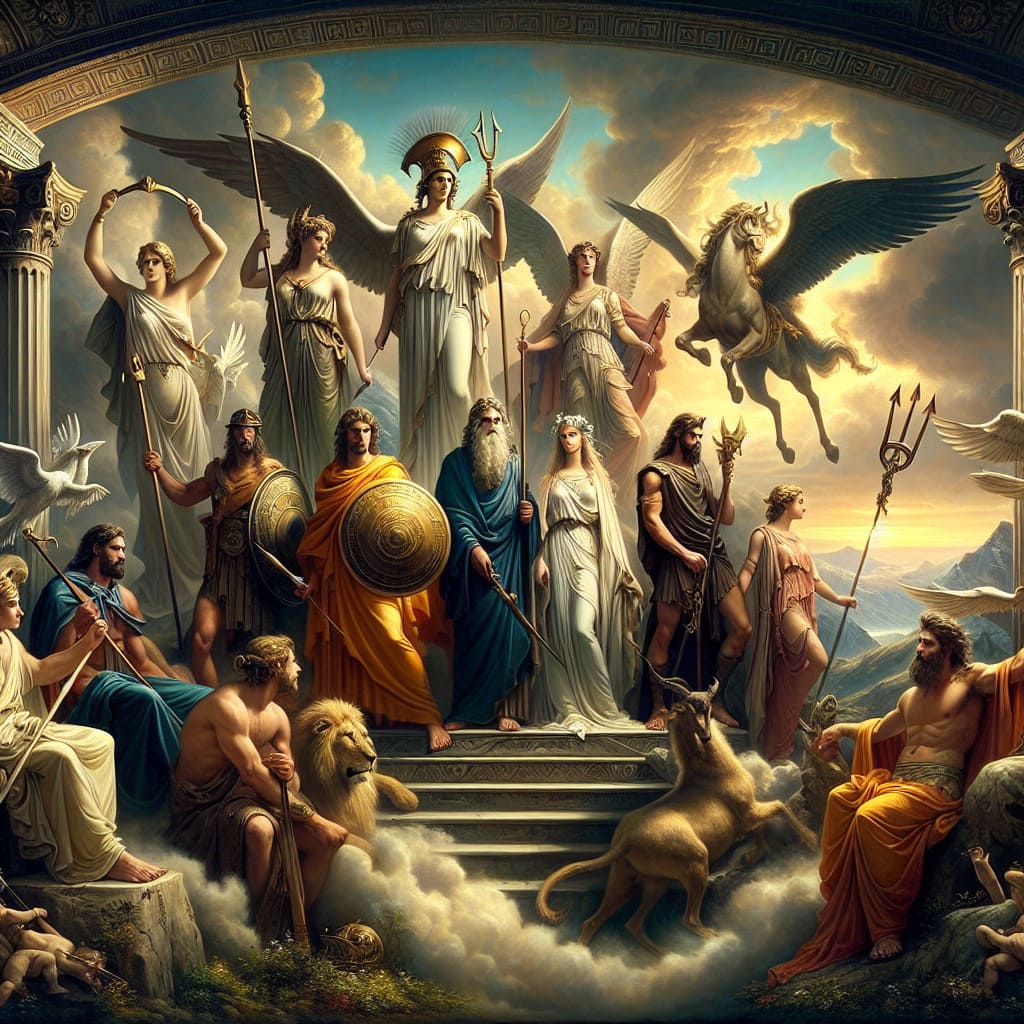Greece is a land steeped in ancient mythology and the stories of the gods and goddesses that ruled over it. In the pantheon of these gods, the pantheon of Greek Pagan Gods stands out as some of the most powerful, revered, and influential deities in the ancient world. From the powerful Zeus to the cunning Athena, the gods and goddesses of Greek Paganism were as varied and complex as the people who worshipped them. In this article, we will explore the different gods of Greek Paganism and what roles they played in the lives of the ancient Greeks.
Greek pagan gods were the gods and goddesses of ancient Greece. They were the basis of the Olympian pantheon and were worshipped throughout the ancient world. These gods were involved in all aspects of life, from everyday activities to the grand events of the Olympic Games. Greek mythology is full of stories about the gods and goddesses, their relationships with each other, and their struggles with the mortals who were their subjects.
Origins of Greek Pagan Gods
The origins of the Greek gods are not fully known. It is believed that the earliest gods were worshipped by the ancient Greeks in the Bronze Age, around 2000 BCE. These gods included Gaia (the Earth goddess), Uranus (the sky god), and Pontus (the sea god). Over time, new gods and goddesses were added to the pantheon, including the Olympians Zeus, Poseidon, and Athena.
The gods had many characteristics in common. Most of them were immortal, though some could be killed. They were all powerful, but some were more powerful than others. They had a variety of strengths and weaknesses, and each was associated with a particular area of life.
Greek Pantheon
The Greek pantheon was divided into two groups: the Olympians, who lived on Mount Olympus, and the Titans, who lived in the underworld. The Olympians were the most powerful of all the gods and were led by Zeus, the king of the gods. The other Olympians included Poseidon, Hades, Hera, Demeter, Athena, Apollo, Artemis, Ares, Aphrodite, Hermes, and Dionysus.
These gods were responsible for controlling the forces of nature, such as the weather, the seas, and the land. They also had the power to grant mortals their wishes, if they were found to be worthy. The gods were said to have created humans in their image, and humans were expected to show respect to the gods in return.
Worship of Greek Gods
The ancient Greeks worshipped their gods through ritual and sacrifices. The gods were believed to be able to hear the prayers of the people and to grant their wishes. Offerings of food, wine, and animals were made to the gods, and the gods were thanked for their blessings. This tradition of worship is still seen today in many parts of the world.
The ancient Greeks held a variety of festivals in honor of the gods. The most well-known of these was the Olympic Games, held every four years in honor of Zeus. Other festivals included the festivals of Dionysus, Apollo, and Demeter, which were celebrated with music, dancing, and feasts.
Legacy of Greek Pagan Gods
The legacy of the Greek gods is still seen today in many areas of culture. Statues of the gods are still found throughout Greece, and their stories are still told in literature and art. The gods are also remembered in modern-day religion, with many of the gods being adopted by later religions, such as Christianity.
The legacy of the Greek gods is also seen in the modern world. Many of the gods’ names are still used in the names of days of the week, months of the year, and planets. The gods are also still invoked in literature and art, and their stories are still told in popular culture.
The gods of ancient Greece still live on in the minds of many people today. They are remembered as powerful and mysterious figures, whose stories and legends still have the power to inspire and fascinate.
The Greek pantheon of gods is a fascinating and complex subject, full of stories, characters, and symbols that have captivated people for centuries. These gods, goddesses and mythical creatures have been an important part of Greek culture since ancient times, and continue to remain relevant today. Through their myths, the Greeks were able to explore their own lives, beliefs, and values, and create a unique and powerful culture. As we look to the future, it is important to remember and appreciate the legacy of the Greek gods and goddesses, as they have shaped the way we view the world.





